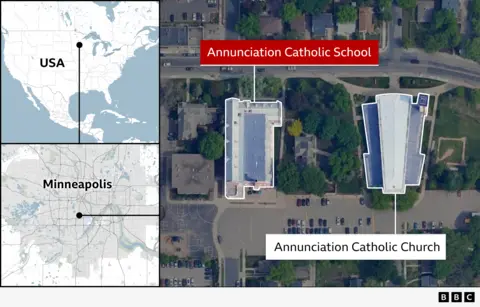Kenyan President William Ruto has unveiled plans to construct a lavish church at his official residence in Nairobi, sparking intense debate over the implications of such a venture. Citing that the project will be funded entirely from his personal resources, Ruto dismissed any need for public apology regarding the proposed $9 million structure, which is anticipated to accommodate approximately 8,000 congregants.
"I am not going to ask for anyone's apology for building a church. The devil might be angry and can do what he wants," Ruto declared boldly at a recent meeting with politicians. His remarks, however, have been met with criticism, especially given the significant socioeconomic challenges currently facing many Kenyans.
Critics have raised concerns about the entanglement of church affairs within state operations, questioning the constitutionality of such a project in a nation that prides itself on secularism. The architectural plans published by the Daily Nation include elegant stained glass windows, but many view the initiative as inappropriate, particularly as the country grapples with rising living costs. Despite the backlash, Ruto affirmed that this building endeavor, which he insists is a necessary upgrade from the existing makeshift church, will not be halted.
The Atheists Society of Kenya has expressed intentions to initiate legal action against the church's construction, branding it a concerning move that promotes religious favoritism under the auspices of his leadership. Their spokesperson, Harrison Mumia, criticized the plan as undemocratic and an endorsement of Christian nationalism.
Ruto, who has earned the nickname "Deputy Jesus," is recognized as Kenya's first evangelical Christian president and often expresses his faith publicly, a trait that has polarized opinions among the populace. Historically known for fostering dialogue among various religious communities, Ruto previously constructed a church at his residence in the suburb of Karen, showcasing a pattern of leveraging religious affiliation in his political journey.
Public figures, including Nairobi's Catholic Archbishop Philip Anyolo, have called for transparency on the nature of the structure being built, hinting that it may unfairly prioritize one Christian denomination over others. The archbishop emphasized that projects located on public property should be approached with caution, opening discussions on the urgent need for inclusivity in matters of faith and governance.
As the conversation continues, Kenyans await clarity on the project's future and its impact on the national fabric of religious pluralism.

















